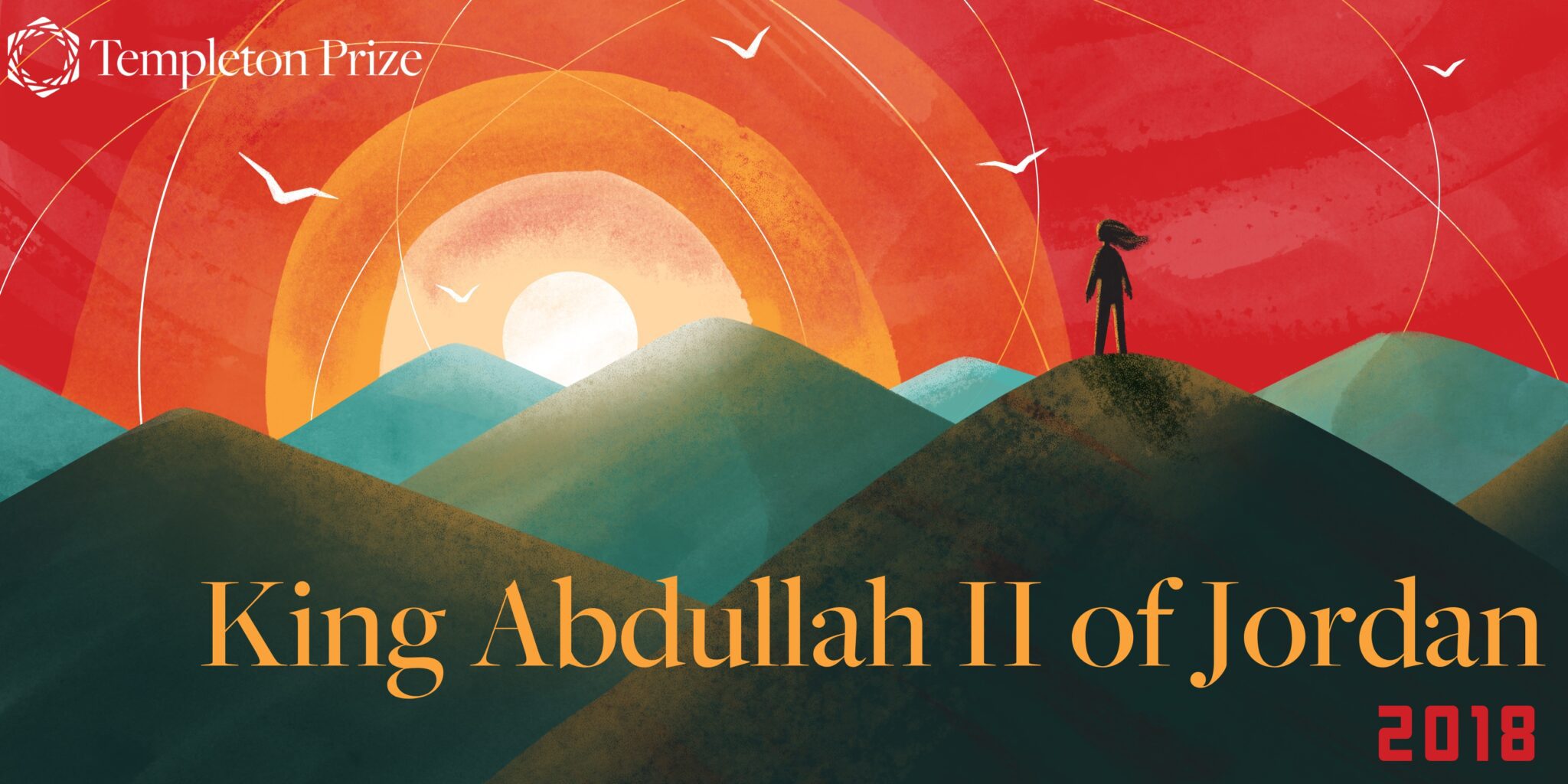In 1973, the first Templeton Prize was given to Mother Teresa. In 2023, we celebrate the 50th anniversary of this award. Over the next 52 weeks, we will highlight each of our laureates and reflect on their impact on the world. From humanitarians and saints to philosophers, theoretical physicists, and one king, the Templeton Prize has honored extraordinary people. Together, they have pushed the boundaries of our understanding of the deepest questions of the universe and humankind’s place and purpose within it, making this (we humbly think) the world’s most interesting prize.
King Abdullah II of Jordan, born in Amman, Jordan on January 30, 1962, has emerged as a global champion of interfaith dialogue, fostering tolerance and cooperation within Jordan and beyond.
A member of the Hashemite family that traces its lineage back to the Prophet Muhammad, his father, King Hussein, was a devout Muslim who instilled in Abdullah a strong sense of faith and respect for Islamic traditions. Abdullah also received a rigorous education in Islamic studies, including Arabic language, Quranic recitation, and Islamic jurisprudence.
Since the beginning of his reign in 1999, King Abdullah II of Jordan has championed initiatives that promote religious education in schools and communities, building bridges of understanding and respect among people of different faiths. He has been a steadfast guardian of Jordan’s religious heritage, ensuring the preservation and protection of holy sites sacred to both Muslims and Christians.
In 2004, he launched the Amman Message that articulated a clear understanding of the central elements of Islam. In 2005, the “Three Points of the Amman Message” recognized the validity of all eight legal schools of Islam. “A Common Word Between Us and You” in 2006 led to an open letter from Islamic religious leaders to Christian religious leaders calling for peace and harmony. In 2010, he proposed the establishment of The World Interfaith Harmony Week, which was subsequently adopted by the United Nations. This annual week-long celebration of interfaith dialogue and understanding is held in the first week of February.
In recognition of his tremendous efforts to foster tolerance and cooperation among diverse faith groups, King Abdullah II of Jordan was awarded the Templeton Prize in 2018 at a private ceremony held at Washington National Cathedral. Distinguished guests included Shaykh Hamza Yusuf, president of Zaytuna College in Berkeley, and His Excellency António Guterres, the ninth Secretary-General of the United Nations.
“And it’s been said that all it takes for evil to prevail is for good people to do nothing. But together, God willing, we can achieve something important; we can create the future of coexistence that humanity so desperately needs.”
—King Abdullah II of Jordan
